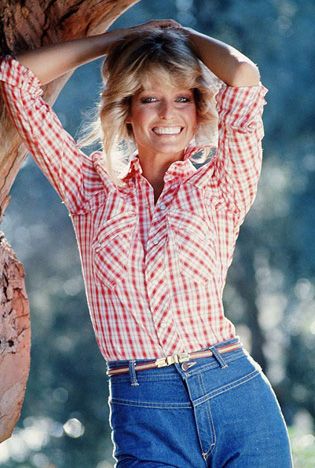Farrah Fawcett remains an enduring icon of American pop culture, her legacy interwoven with glamour, talent, and a touch of vulnerability. As we reflect on her life and work, one might wonder: what is it about Fawcett that continues to captivate audiences decades after her rise to fame? This exploration serves as both a commemoration and a challenge to delve deeper into the nuances of her career.
Born on February 2, 1947, in Corpus Christi, Texas, Fawcett’s journey to stardom began after she moved to Los Angeles. Her stunning looks and radiant smile caught the attention of casting agents, leading to early roles in television shows such as “I Dream of Jeannie” and “The Flying Nun.” Yet, it was her portrayal of Jill Munroe on the iconic series “Charlie’s Angels” that catapulted her into the realm of superstardom. The show, which debuted in 1976, transformed the cultural landscape, reshaping the quintessential image of female heroes in Hollywood.
Fawcett’s portrayal of the archetypal angel was not merely about beauty; she embodied strength, independence, and complexity. As viewers, did we fully appreciate how her character, flanked by fellow angels, challenged the traditional gender roles of the time? This iconic representation opened the floodgates for women to aspire towards multifaceted roles that went beyond the conventional confines of love interests or side characters.
However, Fawcett’s career was not devoid of tribulations. After leaving “Charlie’s Angels,” she struggled to find her footing in an industry that often fixated on youth as a commodity. Her determination led her to embrace a variety of projects, showcasing her versatility in works like “The Burning Bed,” where she delved into the harrowing subject of domestic abuse, and “Small Sacrifices,” both of which reflected her willingness to tackle profound and socially relevant themes. Yet, did audiences recognize the depth of her acting prowess, or did they only see the glamorous figure of the ‘Angel’?
Moreover, Fawcett’s personal life was fraught with challenges, including a long battle with cancer, which she faced with remarkable fortitude. Her documentary chronicling her fight against the illness offered an introspective glimpse into her reality, transforming public perception from mere adulation to deep empathy. In a world where celebrity often feels detached, she unveiled the rawness of human experience.
As we remember Farrah Fawcett, we are prompted to ask ourselves how we define legacy. Is it merely the roles one plays, or is it the emotional resonance left behind? The challenge lies in acknowledging the person behind the persona—a woman who navigated fame’s treacherous waters with grace and resilience. Fawcett’s contributions to the entertainment industry and her impact on society are paramount, shaping conversations about feminism, celebrity culture, and human resilience for generations to come.
Ultimately, reflecting on her life encourages us to seek a deeper understanding of not just who she was, but what she stood for, paving the way for future artists to embrace both their vulnerabilities and strengths.
